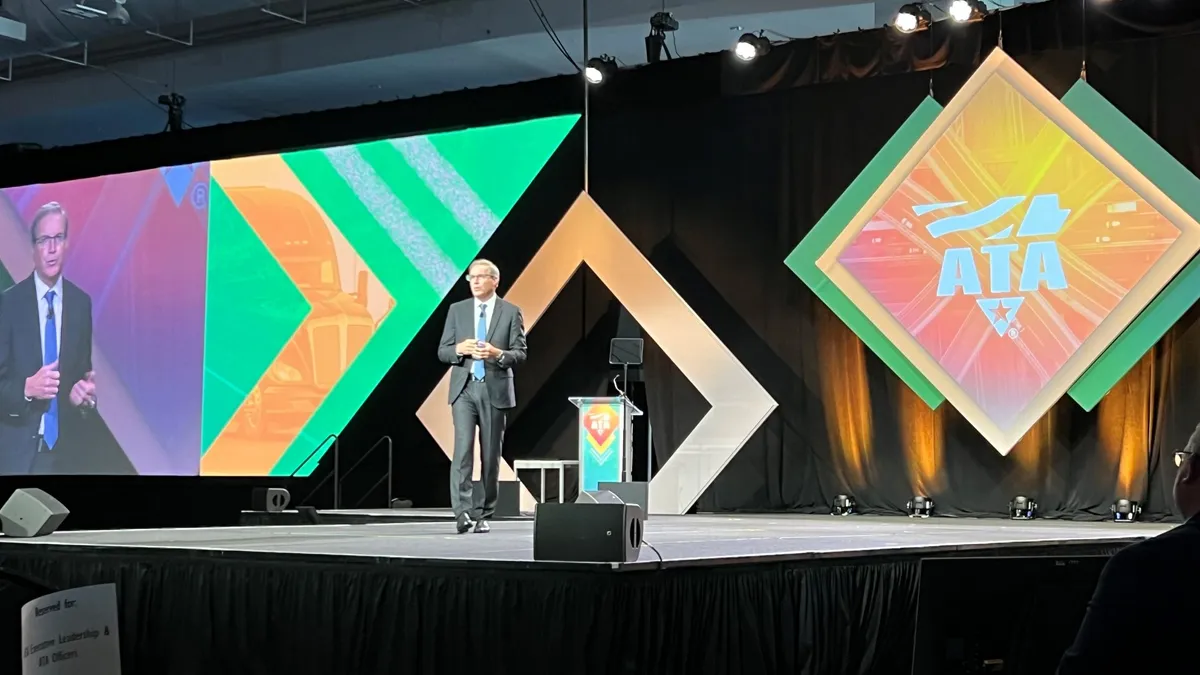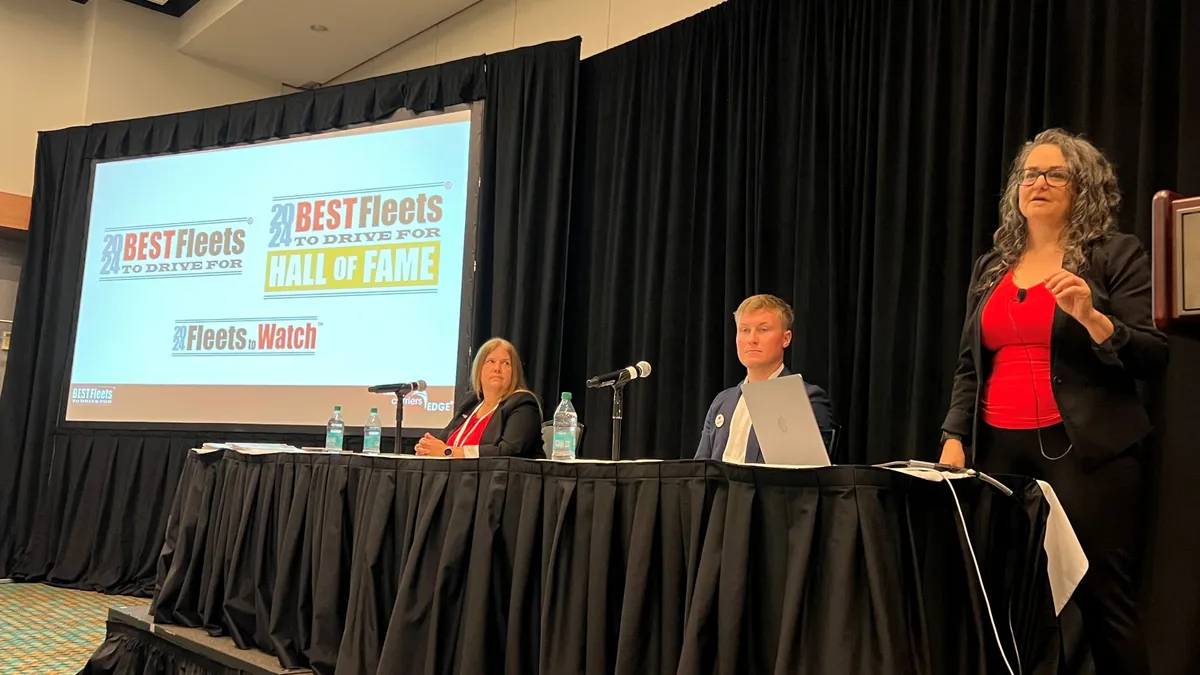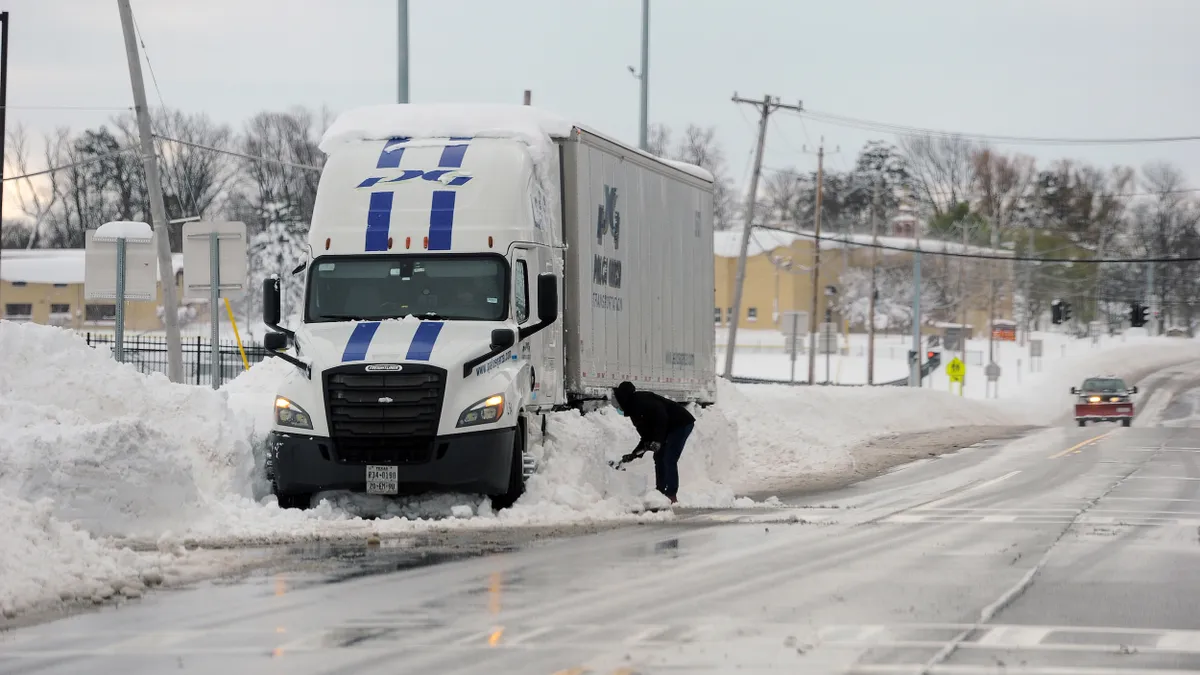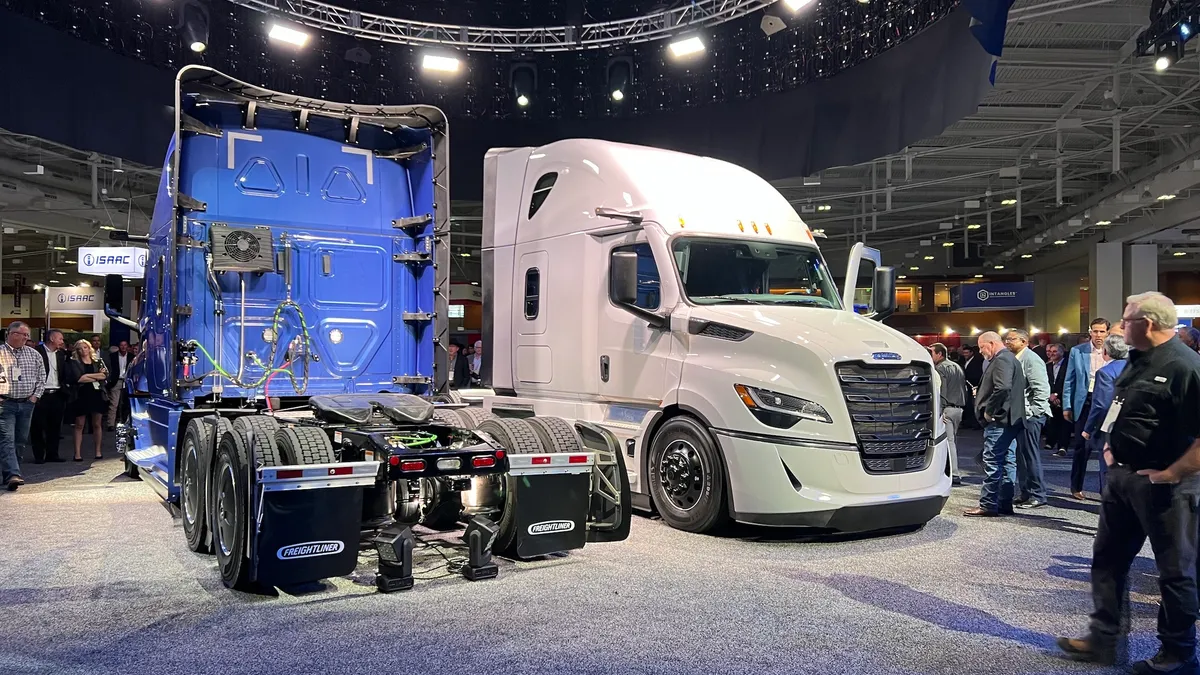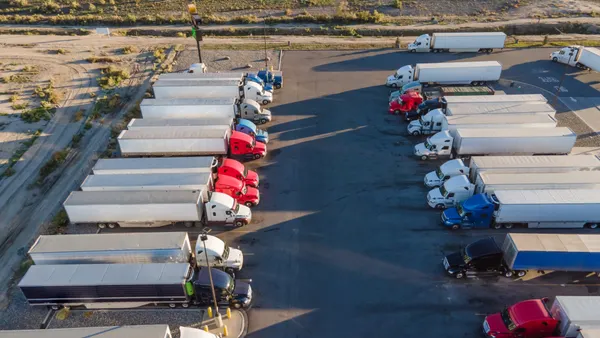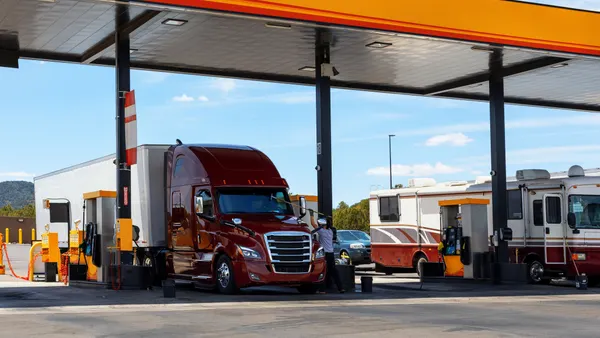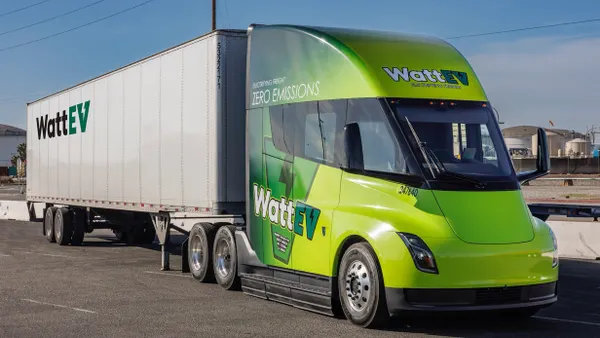NASHVILLE — The truck driver shortage eased for a third straight year in 2023 because of the prolonged downturn in freight demand, not because recruiting quality drivers has gotten easier, American Trucking Associations SVP and Chief Economist Bob Costello said Monday.
The industry was short 60,000 drivers or less last year, 78,000 two years ago, and a record 81,258 in 2021, the ATA estimated. Costello did not provide an exact estimate for 2024 during his annual address at the ATA Management Conference and Exhibition.
“It’s gotten better for all the wrong reasons,” Costello said, in response to an audience question. “I would totally anticipate, if things pick up a little bit better than I'm anticipating, that we would start to see the driver shortage end up rearing its ugly head again.”
In the past, the ATA has said several underlying factors contribute to its driver shortage estimates. The factors include the high average age of existing drivers, the industry’s failure to recruit more women and a tough lifestyle for long-haul drivers, among other factors.
Along with an easing driver shortage, the industry appears to have hit the bottom of the freight cycle, and the factors that influence trucking demand are unlikely to worsen next year, Costello said. Some measures could even improve modestly, despite the slowing economy, Costello added.
Nevertheless, challenging factors persist. A lack of manufacturing activity hurt truck volumes this year, and is a major reason freight demand hasn’t picked up, Costello said.
“A lot of people have underestimated just how important the factory sector is to freight,” Costello said.
The ATA chief economist forecast more carrier failures pulling capacity out of the market and gradual reductions in federal interest rates and mortgage rates. Projected improvement in home sales and improving consumer spending also bode well for the carriers that remain, he said.
Any improvements in freight demand and carrier valuations won’t come without some pain, he warned, particularly if lenders place smaller carriers on accelerated payment plans.
“I do think that, ironically, you would see more fleets go out of business,” Costello said.









